Workshops: how to attend?
The workshops will take place at the same venue of PGDay.IT 2019 (Admiral Park Hotel - Via Fontanella, 3 - Zola Predosa BO). Registration has to be made through Eventbrite. On the registration page, you have to select the topic of interest. The workshop fee does NOT include: coffee break, lunch, and access to PGDay.IT 2019. Participants has to bring their computer. IMPORTANT: WORKSHOPS WILL BE CONFIRMED AT THE ENTRY OF 3 MEMBERS. IN CASE ONE OR MORE WORKSHOPS WILL NOT BE CONFIRMED, WE WILL REFUND THE FEE RECEIVED.
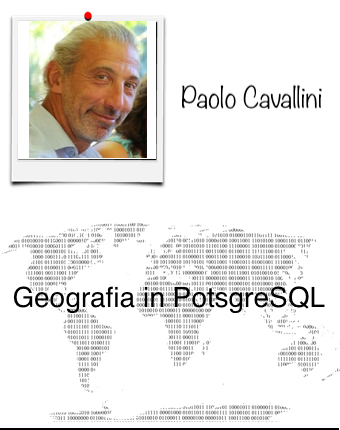
Geografia in PostgreSQL
Paolo Cavallini
May 16th, 2019 - time 9am
Spatial is special? Managing spatial data in PostgreSQL requires some skills not typical of DBAs. In the workshop we will explain how to import, manage and manipulate spatial data through the PostGIS extension, with examples of simple and advanced applications, with particular reference to the interface with GIS applications, both desktop and web. The workshop is aimed at: DBAs without geographical skills, who intend to start managing this type of data in the DB expert GIS who wish to have a robust backend for their data.
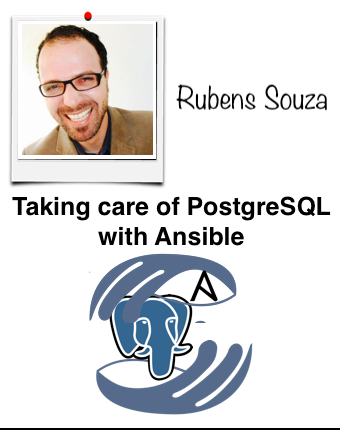
Taking care of PostgreSQL with Ansible
Rubens Souza
May 16th, 2019 - time 9m
Ansible is a powerful automation tool written in Python. With its modules already created for PostgreSQL we can easily manage the most advanced open source database, ensuring that its configuration is accurate in every detail and repeatable as often as necessary. In this workshop we will understand how Ansible works, we will look at some of its main modules for systems / cloud administration and learn how it can be used to orchestrate PostgreSQL deployments, managing all parts of the process easily. As a use case, we will structure a playbook for the installation of a PostgreSQL master and a standby on replication streaming.
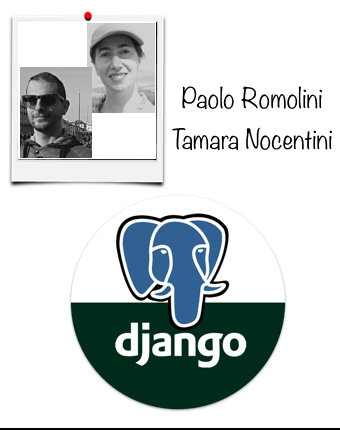
Django & PostgreSQL
Paolo Romolini e Tamara Nocentini
May 16th, 2019 - time 9am
We will start from the basics by creating an application together that will allow you to take notes during PGDay.IT. Your notes will be safe because we will save them on PostgreSQL and at the end of the event you can download them to print them at home.
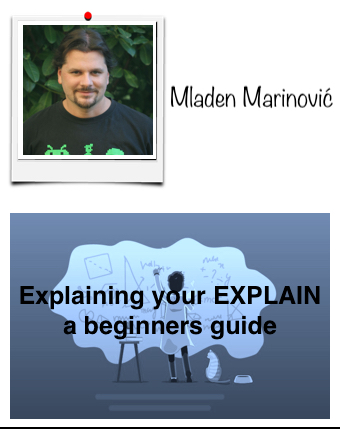
Explaining your EXPLAIN - a beginners guide
Mladen Marinović
May 16th, 2019 - time 2pm
When you first start running your queries it looks like the database is doing some magic and returning your results very fast. After you gain some confidence in writing more complex queries you see that the magic sometimes doesn’t work. Why does the database fail to do its job? To see the reasons why your queries run slowly you can use the EXPLAIN command which devises a detailed query plan of your query. After reading it, you should figure out exactly what is going on with the query, and easily find a way to fix it. In this workshop, we will start with simple queries and joins, and make our way up to subselects, CTE-s and stored procedures. To see all this in action we will use the textual representation of the EXPLAIN and the help of pgAdminIII/4 and other available tools. We will also try to remodel existing databases to be able to use better index types, making queries faster. If time allows it, we can try to fix some problematic queries attendees bring from home 😎
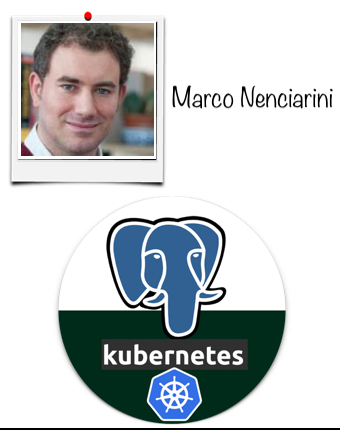
Kubernetes & PostgreSQL
Marco Nenciarini
May 16th, 2019 - time 2pm
Workshop introduttivo su Docker e Kubernetes. Docker è un progetto open source che automatizza il deployment di applicazioni all’intero di Container software. Kubernetes è una piattaforma open source che automatizza le operazioni sui container Linux, eliminando molti dei processi manuali necessari per eseguire il deployment e scalare le applicazioni containerizzate. Il workshop è rivolto a chi ha familiarità con gli ambienti unix ed è curioso di sperimentare Docker e Kubernetes. Durante il workshop affronteremo i seguenti argomenti: Introduzione ai container, Architettura di Docker, Operazioni di base con Docker, Comunicazione fra container, Deploy con Docker Compose, Introduzione a Kubernetes, Architettura di Kubernetes, Operazioni di base con Kubernetes, Gestione di connessioni interne ed esterne, Volumi persistenti, Deploy con Kubernetes. Per partecipare al workshop sarà necessario avere un portatile con sistema operativo Linux o OSX.
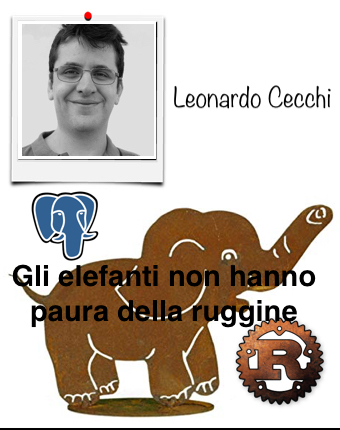
Elephants are not afraid of rust
Leonardo Cecchi
May 16th, 2019 - time 2pm
Rust is a highly efficient programming system designed to write system software. After an introduction to the most interesting features of the language and a comparison with the most famous languages, we will see how to use PostgreSQL in the Rust programs. After talking about the Rust macro system, we will use it with Diesel: an ORM that allows us to check the correctness of the queries during compilation and then to immediately find the problems. If we stay a while, we will build a PostgreSQL extension together using Rust.
workshop registration fee
Workshop - Ordinary ticket
35,00 €